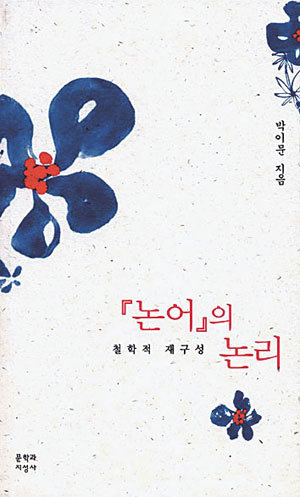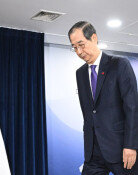Scholar: Confucius Was One Progressive Individual
Scholar: Confucius Was One Progressive Individual
Posted October. 01, 2005 07:43,

Park I-mun, a renowned humanities scholar of French literature and philosophy, and Confucian script, examines the core beliefs of East Asia with his book, Confucius must Die for the Nation to Live, which throws prehistoric images of Confucianism out the window.
The author of the bestseller, Park, is a guest professor at Yonsei University and is the author of the 1980 book Taoist, which is currently in its 17th printing.
Confuciuss philosophy is revolutionary and progressive. It is intense, participative, and healthy, Park said. Confucius was a rationalist as well as a humanist; a logical pragmatist. In some ways, he is a postmodernist.
With this view, instead of interpreting each and every Chinese character of the 20 volumes of 499 chapters, the author explains six crucial messages like, Virtue and Value Logic, Naturalism and Demonstration Logic, Participation and Politics Logic, Benevolence and Ethics Logic, Etiquette and Rules Logic, Wisdom and Perception Logic, and uses quotes from the script. The contents, which could get boring very quickly with its terminology and repetitive thesis, are an easy read with profoundness and vitality. Let us take a closer look at Virtue.
Virtue is the pure and honest heart; a disposition far from fallacy and hypocrisy. Virtue is the mental and spiritual existence of man. Virtue is innate, but the reason Confucius taught this is because it may be overshadowed by personal ignorance or social conditions.
The author focuses especially on the fact that Confucius was a century ahead of Aristotle in emphasizing the we mentality on the basis that humans are social animals.
The difference lies in the fact that Confucius believed the Taoists were escapists. Confucius believed in aggressive reality and participation. He never asked for solely tradition and order and adaptation to simply succumb. In fact, he was just the opposite; he was a revolutionist who sought to reform the established society. His beliefs are not embedded in abstract notions of ethics, but are a practical education that finds meaning in participation in social reality.
This book oscillates between philosophies of the East and West, suggesting a comprehensive contemplation that only the greatest scholars who have struggled with the concept of reality could offer.
The author states, In contrast with Western attitudes, including Marxism, that are extroverted, belligerent, and subjugating, the East is introverted, peaceful, and retrospective, and said, The seemingly most old-fashioned Confucianism is actually the high-tech fresh mentality that can solve and shed light on abusive words and self-righteousness; problems of the modern society kneaded out of violence.
Mun-Myung Huh angelhuh@donga.com







